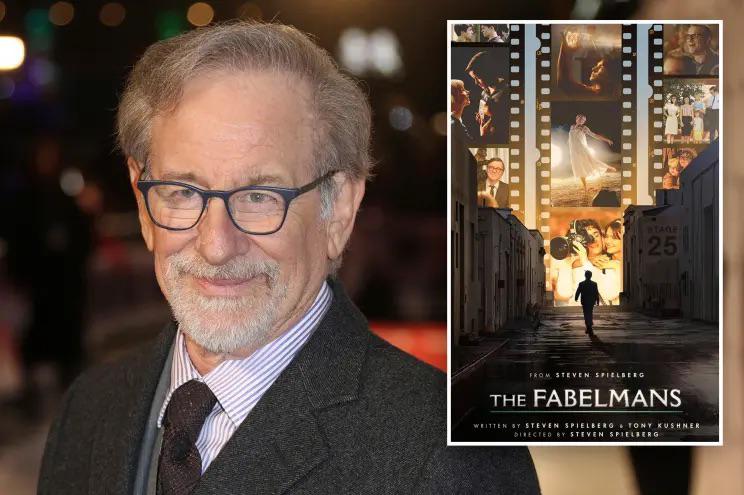When you say Steven Spielberg, you say Schindler’s List, E.T. Alien, Indiana Jones, Jurassic World, Saving Private Ryan and dozens of other films that have filled theaters around the globe and become landmarks of world cinema. Steven Spielberg has redefined popular world cinema since 1975, when he released the blockbuster Jaws, and continues to this day.
Steven Spilberg, an accomplished director
Director, producer and screenwriter, Spielberg is the winner of three Academy Awards. He received nine Best Director nominations and won twice for Schindler’s List and Saving Private Ryan.
He received his third Best Picture award for Schindler’s List. In total, Steven Spielberg’s films have received 147 nominations and won 16 Oscars, including The Fablemans, which is nominated in no less than 7 categories this year.
The secrets behind The Fablemans
Playtech.co.uk caught up with the legendary director to find out the secrets behind the film, what made him make the semi-autobiographical film, and if he’s thinking about retiring from filmmaking.
Reporter: Is The Fablemans a turning point for you? What changes are coming after this film?
Steven Spielberg: You know what? I didn’t know that any of those movies changed me until 20 years after each of them, actually. But I will say that this movie is a way for me to bring my mom and dad back. And it also brought my sisters, Annie, Susie and Nancy, closer to me than I ever thought possible, and for that it was worth making the movie.
Reporter: Did you think about this film a long time ago?
Steven Spielberg: I’ve obviously been thinking about it for some time. And I didn’t really know when I was going to tackle it. Not because I’ve decided to retire and this is my swan song, I promise. Don’t believe any of this. Don’t believe this.
Tony (Kushner – ed.) and I started talking about this possibility when we were making Lincoln together, that was the first time we talked about this project (The Fablemans).
Reporter: How did you manage to make this film?
Steven Spielberg: Tony fulfilled the role of therapist, and I was his patient, and we talked and talked for a long time, and Tony helped me through it. But when Covid started… This was before Covid… When Covid started, we all had a lot of time and we were all afraid.
And I don’t think anybody knew in March or April 2020 what was going to happen in art or even in everyday life and how things were going to evolve a year later.
And I think in that sense, I felt that things got worse and worse, and I felt that if I was going to leave anything behind, it was the thing that I had to work out and reveal about my mother, my father, and my sisters, Anne, Sue, and Nancy. I didn’t have a “now or never” feeling, but I was close to having it.
Reporter: How were you able to select this group of outstanding actors for such different roles? Your father, your mother, even you as a child, as well as other family members?
Steven Spielberg: Well, part of it is, obviously, I had to have a relationship with them that felt organic and authentic. And it wasn’t about anything other than who I could have a deep connection with that reminded me most of the people who brought me into this world and raised me and gave me good values and gave me… From my mother I had a lot of freedom to “chase tornadoes,” metaphorically, all the time.
And I cringed – as Michelle (Williams – ed.) knows – when I first met her. I didn’t have a film for her, but I really wanted to meet the person who made Blue Valentine. And so, she stuck as an idea in my prefrontal lobe for Mitzi or for my mother’s character, Leah.
And then I felt the same way about Paul.
Reporter: During this film, we learn that you were bullied as a child…
Steven Spielberg: Bullying is just a minor aspect of my life. Anti-Semitism is another aspect of my life, but it’s not a driving force in my life, although it made me very, very aware early on that I was an outcast.
I should also say that when I was bullied my senior year of high school, only two boys were represented in the film. The school didn’t bully me. The school is fine. It was just two individuals. Overall, what happened to me does not automatically reflect on the institution of that high school.
And it was an aspect of my life. I wanted it to be in the movie, but it wasn’t supposed to be the subject of the movie.
Reporter: So is The Fabelmans a way of saying goodbye and retiring?
Steven Spielberg: Absolutely not! I haven’t decided to make this film now because I’ve decided to retire! This feature film is not, in a way, my swan song. You really shouldn’t see this film as some kind of retirement.
I have a lot more to say and do.
Fabelmans is more like therapy for me!
Reporter: What are you most proud of today after directing The Fabelmans?
Steven Spielberg: I feel like with this film I was able to bring my family closer together. The Fabelmans is, for me, a way to bring both my mother and father back to life. But at the same time I feel that this film has allowed me to be closer than ever to my sisters, Annie, Susie and Nancy!
The Fablemans was directed, written and co-produced by Steven Spielberg. It is a quasi-autobiographical film based on the director’s adolescence and early working years.
The Hollywood Reporter described The Fablemans as “…a vivid capture of the auteur’s early flashes of cinematic insight and a loving but unclouded portrait of the family that created him.”


 Renault’s compact family SUV will be called the Symbioz -.
Renault’s compact family SUV will be called the Symbioz -. Peugeot and its new range of salt and pepper mills -.
Peugeot and its new range of salt and pepper mills -. A new Uber Eats ad is being criticized for showing a peanut allergy -.
A new Uber Eats ad is being criticized for showing a peanut allergy -. Pagani announces new track-based hypercar, known as the Huayra R Evo -.
Pagani announces new track-based hypercar, known as the Huayra R Evo -. Introducing the Oscars in the Best Casting category -.
Introducing the Oscars in the Best Casting category -.